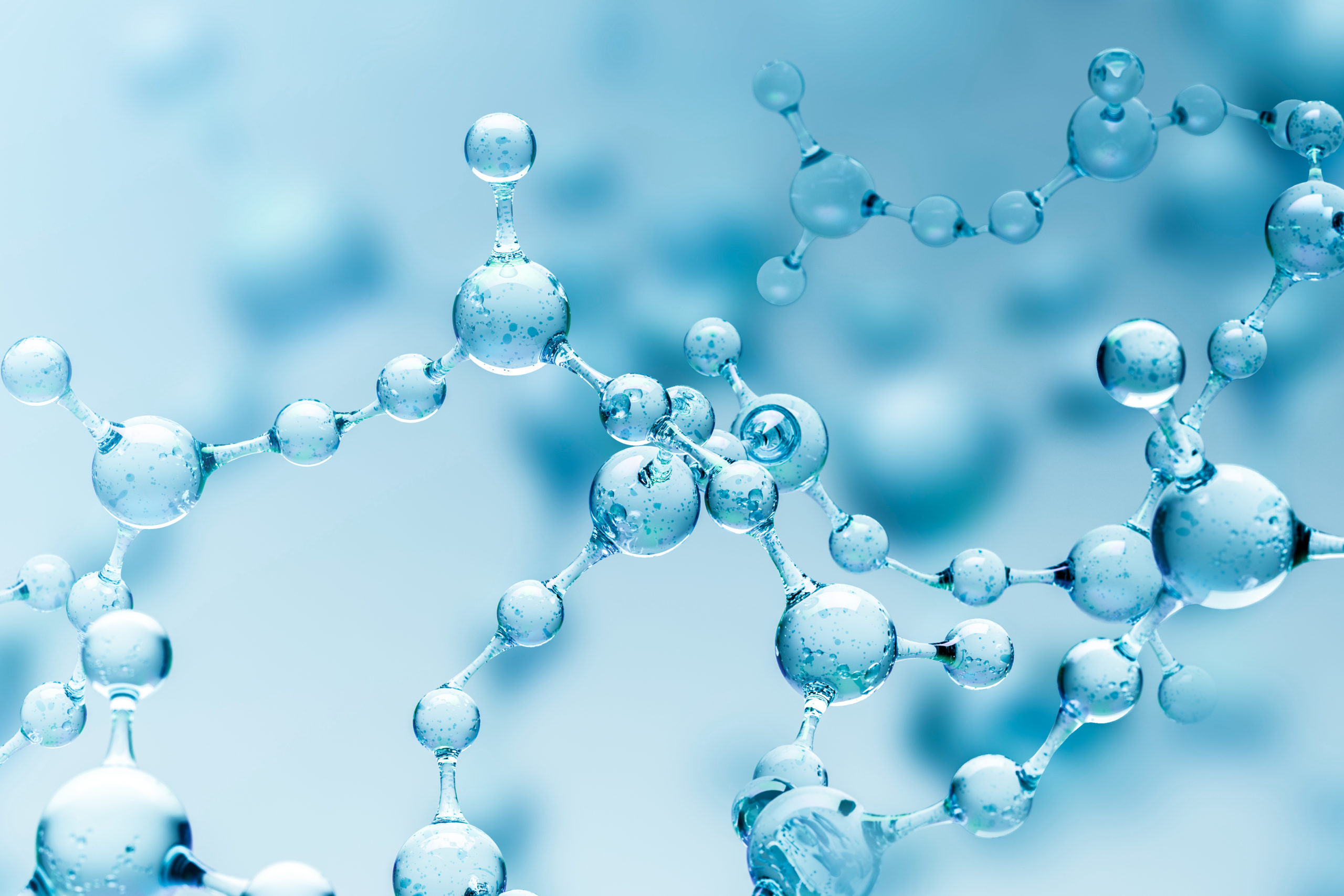Navigating the intricate maze of your body’s biochemistry, you’ll stumble upon NAD+. This vital coenzyme, instrumental in cellular function, holds untapped therapeutic potential. You’re embarking on an exploration of NAD+’s role in disease prevention and aging, delving into clinical studies and future research directions. Let’s unravel this complex web together, deciphering how harnessing NAD+ might revolutionize modern medicine.
Understanding the Role of NAD+ in Human Body
It’s crucial to understand the role of NAD+ in our bodies as it’s implicated in various biological processes. This coenzyme is essential for several enzymatic reactions and plays a significant part in energy metabolism, which is central to your body’s functioning. Your cells rely on NAD+ metabolism to carry out their fundamental activities.
As you delve deeper into this intricate system, you’ll discover that NAD+ biosynthesis is one of the key pathways involved. The process involves converting dietary nutrients into NAD+. It’s vital for maintaining the balance between cell health and disease progression.
While understanding these concepts might seem challenging at first, it’s necessary to grasp them fully if you’re keen on exploring how they impact human health and disease treatment strategies. Specifically, dysfunction in NAD+ metabolism or biosynthesis can lead to various pathologies including neurodegenerative disorders and metabolic diseases.
The Biochemical Structure of NAD
You’re about to delve into the intricate world of NAD+, its molecular composition, and the significant role it plays within our bodies. You’ll discover why NAD is crucial in various biological processes, from energy metabolism to cell survival, revealing its fundamental importance in maintaining good health. Furthermore, we’ll dissect the complex functionality mechanism of NAD+, providing a detailed examination of how this coenzyme operates at a cellular level.
NAD+ Molecular Composition
NAD+’s molecular composition plays a significant role in its therapeutic potential. You should understand that the NAD+ synthesis process is complex, relying on different enzymes and substrates to create this vital coenzyme. The main dietary sources of NAD+ include niacin, tryptophan, and nicotinamide riboside. These provide the necessary precursors for NAD+ biosynthesis.

Ingesting these nutrients isn’t merely beneficial; it’s crucial to maintaining sufficient levels of NAD+. Without them, your body can’t produce enough coenzymes to support cellular processes like energy production and DNA repair. However, dietary intake isn’t the only factor influencing NAD+ synthesis; other variables such as age or illness can affect this process too.
Importance of NAD
Understanding the importance of this coenzyme can provide a deeper insight into how your body functions at a cellular level. NAD+ is critical for energy production, converting nutrients from NAD+ dietary sources like milk, yeast, and fish into usable energy. It’s also crucial in maintaining DNA health and regulating your body’s stress responses.
Additionally, NAD+ plays a pivotal role in exercise performance. During physical activity, your body demands more energy, thus requiring increased levels of NAD+. By supporting the function and repair of mitochondria – your cellular powerhouses – it boosts stamina and recovery speed. In essence, an optimum amount of NAD+, attained through diet or supplementation, not only fuels your cells but also underpins vital physiological processes leading to better health outcomes.
NAD+ Functionality Mechanism
Let’s delve into how NAD+ functions, which is crucial for various biochemical reactions in our bodies. You’ll find that NAD+ metabolism and biosynthesis are essential processes in cellular energy production. It’s a cofactor involved in redox reactions, transferring electrons from one reaction to another. This critical role means it’s indispensable for the energy generation from your food intake.
Moreover, NAD+ biosynthesis involves converting precursors like nicotinamide riboside into active NAD+. When you’re healthy, this conversion ensures balance between the synthesis and consumption of this molecule.
Lastly, remember that maintaining an optimal level of NAD+ is paramount for good health. Any imbalance could disrupt metabolic activities and lead to diseases. Therefore, understanding its functionality mechanism could provide insight into therapeutic strategies against age-related disorders.
How NAD+ Affects Cellular Function
You’re likely wondering how NAD+ influences cellular function. This essential coenzyme plays a vital role in the metabolism of cells, particularly in energy production.
NAD+ metabolism is an intricate process; it’s involved in both the synthesis and degradation of molecules. Its primary role is as a redox carrier, helping to transfer electrons from one reaction to another during metabolic processes. This critical feature enables cells to convert nutrients into ATP – the energy currency within cells.
In terms of Cellular Energy Production, NAD+ is integral to two fundamental biochemical pathways: glycolysis and oxidative phosphorylation. It acts as a catalyst in these processes, aiding in converting glucose into usable energy.
– NAD+ actively participates in maintaining cell health by promoting DNA repair.
– It aids enzymes like sirtuins and PARPs that are crucial for longevity and stress responses.
– NAD+ plays an instrumental role in activating proteins that regulate cell survival mechanisms.
– It also influences inflammatory responses by regulating immune cell functions.
Understanding the influence of NAD+ on cellular function offers valuable insights into its potential therapeutic applications. Boosting levels might provide a novel approach to mitigate age-related diseases given its myriad roles within cells.
The Therapeutic Benefits of NAD+ Supplementation
As you delve deeper into the impact of supplementation on health, particularly focusing on NAD+, it’s crucial to understand its potential role in disease treatment. The utilization of this coenzyme has exhibited promising outcomes in various medical conditions, yet it’s equally vital to consider safety and appropriate dosage. By analyzing these facets, you’ll gain a comprehensive insight into how NAD+ supplementation could revolutionize therapeutic approaches.
Supplementation Impact on Health
In considering the impact of NAD+ supplementation on health, it’s essential to note its potential benefits in improving cellular functions. Your body’s NAD+ levels can be influenced by both your diet and lifestyle choices.
* The importance of a balanced NAD+ diet cannot be overstated. Foods rich in niacin, such as fish and mushrooms, can boost your body’s natural production.
* Regular exercise is another lifestyle factor that boosts NAD+, promoting healthy aging.
* Adequate sleep also contributes to maintaining optimal NAD+ levels as poor sleep has been linked with lower levels.
* Chronic stress negatively affects NAD+, so stress management techniques are vital.
Ultimately, while supplementation can enhance your health significantly, integrating a well-rounded approach encompassing diet and lifestyle is key for maximizing the benefits of NAD+.
NAD+ in Disease Treatment
You’ve learned how NAD+ supplementation can impact overall health. Now, let’s delve deeper into its role in disease treatment. It’s crucial to understand the significance of NAD+ bioavailability and biosynthesis in this context.
Here’s a table illustrating some diseases where NAD+ shows promising therapeutic potential:
| Disease | Role of NAD+ Bioavailability | Role of NAD+ Biosynthesis |
| Alzheimer’s | Enhances cognitive function | Regulates neuronal survival |
| Heart Failure | Restores mitochondrial function | Boosts energy metabolism |
| Diabetes | Improves insulin sensitivity | Balances glucose homeostasis |
| Cancer | Inhibits tumor growth | Suppresses oncogene expression |
| Aging | Slows down aging processes | Maintains cellular health |
Scientifically speaking, ensuring adequate availability and synthesis of NAD+ could pave the way for innovative treatments. So, stay tuned as we explore further how these processes may reshape our understanding of disease management.
Safety and Dosage Considerations
Let’s move on to discuss safety and dosage considerations, which are essential factors when considering any form of supplementation. It’s crucial to understand the potential NAD+ side effects and determine your optimal NAD+ intake.
– NAD+ Side Effects: Although generally safe, some may experience fatigue, nausea, or headaches. These effects often diminish with continued use.
– Optimal NAD+ Intake: Your ideal intake will vary based on individual needs and existing health conditions. Always consult a healthcare professional.
– Individual Differences: Everyone reacts differently to supplements; what works for one person might not work for another.
– Long-Term Use: Little is known about the long-term effects of high-dose NAD+ supplementation; more research is needed in this area.
Clinical Studies on NAD+ and Disease Prevention
Numerous clinical studies are currently underway to determine NAD+’s effectiveness in preventing various diseases. As you delve into the available research, consider two key areas: NAD+ dietary influence and NAD+ genetic implications.
Firstly, your diet plays a crucial role in maintaining optimal levels of NAD+. Consuming foods rich in niacin, tryptophan, and other precursors can help boost your body’s production of this essential coenzyme. But it’s not just about what you eat; when you eat could also be significant due to potential links between fasting periods and increased NAD+ synthesis.
Secondly, let’s explore genetics. Certain gene variants may influence how effectively your body produces or uses NAD+. Understanding these genetic implications could lead to personalized treatments or preventative measures that optimize your individual response to different sources of NAD+.
These studies bring hope that manipulating dietary habits or using targeted gene therapies might offer new ways to prevent diseases linked with low levels of NAD+, such as Alzheimer’s or cardiovascular disease. However, more comprehensive clinical trials are needed before firm conclusions are drawn. It’s an exciting time for scientists studying the therapeutic potential of NAD+ within modern medicine.

The Relationship Between NAD+ and Aging
There’s a growing body of evidence suggesting that NAD+ levels decline with age, which may contribute to the aging process and related health issues. This decline in NAD+ seems to be linked with various signs of aging and you might be interested in how it affects you personally.
NAD+ longevity research is uncovering fascinating possibilities for promoting healthy aging. It’s been suggested that boosting NAD+ levels could potentially counteract some effects of aging.
Additionally, there’s an increasing interest in the role of NAD+ in skincare. Topical application or dietary supplementation of NAD+ may enhance skin health and appearance by promoting cellular repair and combating oxidative stress.
To give you a clearer picture, here are some key points:
– Lowered NAD+ levels may expedite the onset of age-related diseases.
– Boosting these levels can possibly mitigate certain effects of aging.
– The potential use of topical or ingested NAD+ for skincare purposes.
– Ongoing research into how enhancing cellular metabolism with NAD+ affects longevity.
Future Research Directions for NAD+ in Medicine
Future studies in this field are expected to unveil more about the medical applications of enhancing cellular metabolism. You’ll find that a focus on NAD+ bioavailability and NAD+ biosynthesis could lead to breakthroughs in our understanding of how these processes affect health and disease.
NAD+ bioavailability, or the amount of NAD+ that is accessible for use by your body’s cells, is key to their function. If we can figure out ways to increase it, we might be able to improve cell health and slow aging. The role of NAD+ biosynthesis-how your body makes NAD+-is also critical here. An improved understanding could help us intervene in diseases where this process goes wrong.

In essence, it’s all about balance: too little available NAD+, you’re in trouble; an inability to properly synthesize it, you’ve got problems as well. So research will likely delve into methods for both increasing availability and optimizing synthesis.
Remember though, while science moves forward with optimism, caution must prevail. It’s not just about finding benefits; potential risks associated with manipulating cellular metabolism also need careful consideration.
Frequently Asked Questions
What Are the Potential Side Effects of Nad+ Supplementation?
You’re asking about NAD+ supplementation side effects. They’re generally mild, but can include nausea, fatigue, headaches, and insomnia. If you’ve NAD+ allergies, reactions may occur. Supplementation timing could impact these effects too.
How Can Nad+ Levels Be Naturally Boosted in the Body?
You can naturally boost your NAD+ levels through dietary influence, incorporating foods rich in niacin. Additionally, regular exercise impacts NAD+ concentrations positively by stimulating its production in your body’s cells.
Are There Any Specific Diseases or Conditions That Could Benefit More From Nad+ Therapy?
Yes, Alzheimer’s and aging-related conditions could significantly benefit from NAD+ therapy. This compound has shown potential in enhancing brain health and slowing down age-related cognitive decline. It’s a promising field to explore further.
What Is the Recommended Daily Intake of Nad+ for an Average Adult?
There’s no set recommended daily intake for NAD+. Its absorption varies in individuals. You can boost your NAD+ levels through dietary sources, but it’s essential to consult with a healthcare provider first.
Are There Any Known Drug Interactions With Nad+ Supplementation?
You’re asking about NAD+ supplement’s drug interactions. Currently, there aren’t any known interactions. However, studies on NAD+ and antioxidants, as well as NAD+ and aging, are ongoing to explore potential effects and benefits.
